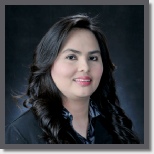
Engr. Shiella Marie P. Garcia, MBA, MEng-
Bachelor of Science in Computer Engineering
To combine the theoretical foundations of computing with the practical engineering
knowledge into a broad, updated and integrated curriculum equipped with updated technology
vital to industry, community and the academe.
To obtain practical design experience
in one of the several areas of concentration in the field of computer engineering
by providing a balance of required courses and technical electives in the different
stages of learning.
To prepare graduates with compassion conscience and competence
suited for entry-
To provide linkages both for
private and public sectors whether academic or non-
To
become a center of development
Course Description
MA9COE -
Determinants and matrices; power series expansion; Fourier series; Fourier transform;
Laplace transform; Hilbert transform; z-
ECEM1 -
Review of propositional and predicate logic; methods of theorem proving; strong and
weak induction; finite and infinite sets, set operations; introduction to computational
complexity; theta and big-
CpE8LEC -
Transfer function; block diagram; signal flow graphs, root locus, bode; nyquist and polar plot sensitivity and stability criteria, line feedback systems compensations techniques.
CpE8LAB -
Experimentation.
CpE15LEC -
Topics include a review of logic circuits, bus structures, memory organization, interrupt
structures, arithmetic units, input-
Page 1
CpE3LEC -
Design and analysis techniques for solving domain specific problems, algorithm design strategies, distributed algorithms, introduction to database systems and modeling.
CpE18LEC -
Basic operating system components and their functions, concurrency, scheduling and dispatch, memory and device management, file systems and performance evaluation.
CpE11 -
Digital processing of signals, sampling, difference equations, discrete-
CpE6LEC -
Boolean algebra, combinational circuits, minimization techniques, asynchronous and synchronous sequential circuits, MSI and LSI circuits and their application.
CpE6LAB -
Converting the Boolean algebra to hard wiring through experimentation.
CpE20 -
Software development process, requirements, analysis and definitions, tolls and techniques, implantation tolls and techniques, coding and programming techniques, reusable software management issues.
Page 2
Cpe10LEC -
Algorithms, design or digital sub system, design of sequential circuit and multi input system controller, introduction to programmable system controllers.
CpE10LAB -
Experiments and simulation.
CpE5LEC -
Internal number representations and arithmetic; computer structure and machine language, assembly language concept.
CpE5LAB -
Machine programming, interfacing and concept application
CpE12 -
Theory and components of data communication systems, modes, codes, and error detection and correction of techniques for data transmission, network protocols, common carrier services.
CpE19LEC -
Survey of microprocessor organizations, microcomputer architecture, microprocessor programming, interfacing techniques, bus standards, microcomputer development, systems and other tools for design.
Page 3
CpE19LAB -
Microprocessor programming, interfacing,
student project
CpE28 -
A 600 hrs. practicum on the company related to their course on which practicumers
are trained, and expected to perform according to their profession.
Page 4
(046) 431-
Objectives


San Sebastian College-


Manila-
(046)431-

Nurturing the mind, empowering the heart
| Administration |
| VMVO |
| History |
| Seal |
| Graduate School of Business |
| College |
| High School |
| Grade School/Pre-school |
| CABAHM |
| CASN |
| CCJE |
| CECST |
| Requirements |
| Sebastinian Echo |
| ICT Department |
| Medical & Dental |
| Recoletos Outreach Program |
| Registrar |
| St. Thomas of Villanova Libraries |
| Jobs |
| Invitation to Bid |